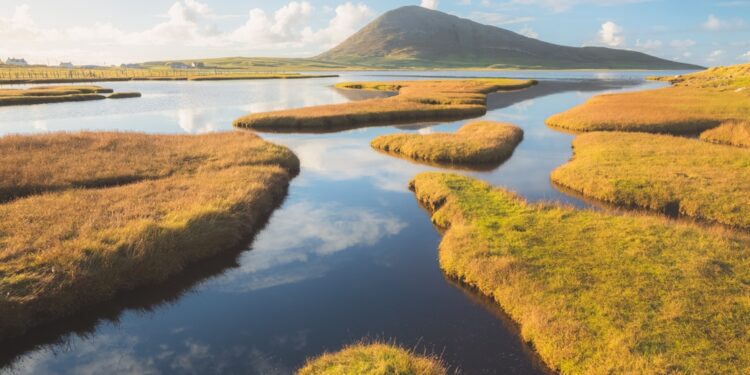Aviva has partnered with the World Wide Fund for Nature (WWF) to conduct new research on how saltmarshes in the UK can remove carbon emissions from the atmosphere.
The project will initially take place on the Ribble Estuary in Lancashire, where scientists will measure the role of the salt marsh as a long-term natural store of carbon – known as ‘blue carbon’ when stored in coastal marine ecosystems.
This research will monitor current levels of carbon cycling between the landscape and the atmosphere and combine this data with traditional methods of analysing carbon stored in saltmarsh soils to discover how much carbon is captured, how quickly, and for how long it is stored.
This study will also look at the effect of rising sea-levels on salt marsh habitats, helping prioritise areas for restoration and conservation.
Aviva says this project is part of its wider ambitions to help ensure the UK is the most climate-ready large economy by 2030.
As well as playing a significant role in addressing climate change, saltmarshes are rich habitats for plants and animals and can provide natural protection from flooding and coastal erosion for nearby communities. It is estimated though that in the last 200 years 85 per cent of English saltmarshes have been lost, primarily as a result of historic conversion to agricultural land.
A 2019 government report identified 22,000 hectares of land around the UK coast that could be rested to salt marsh potentially capturing over 300,000 tonnes of carbon dioxide a year.
Aviva Group sustainability director Claudine Blamey says: “We are delighted to work with WWF to fund research that will make a genuine contribution to the wider understanding of how salt marsh can help us move towards net zero. It also delivers flood mitigation benefits for the communities based nearby, worth over £70m for England and Wales, protection more than 90,000 properties and more than £2bn of assets.”
WWF blue carbon technical officer Tom Brook adds: “Our work will enable sustainable investment in salt marsh as a nature-based solution to tackling the climate emergency, with added benefits to coastal defence, biodiversity and water quality.”
The research is carried out with WWF, and the UK Centre for Ecology and Hydrology and the Royal Society for the Protection of Birds.





